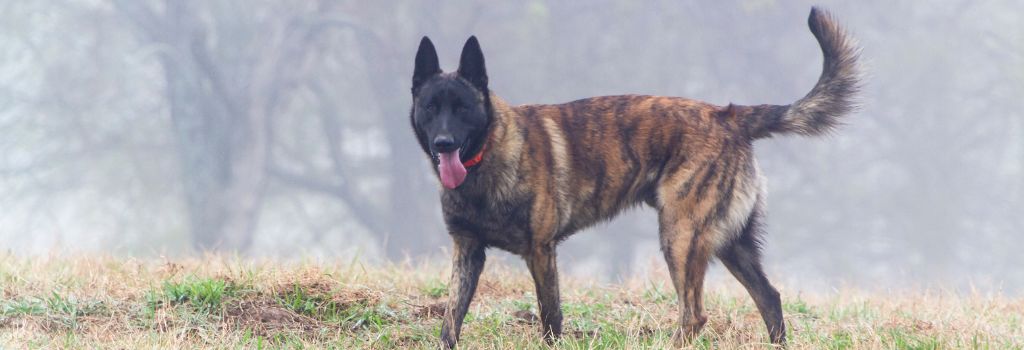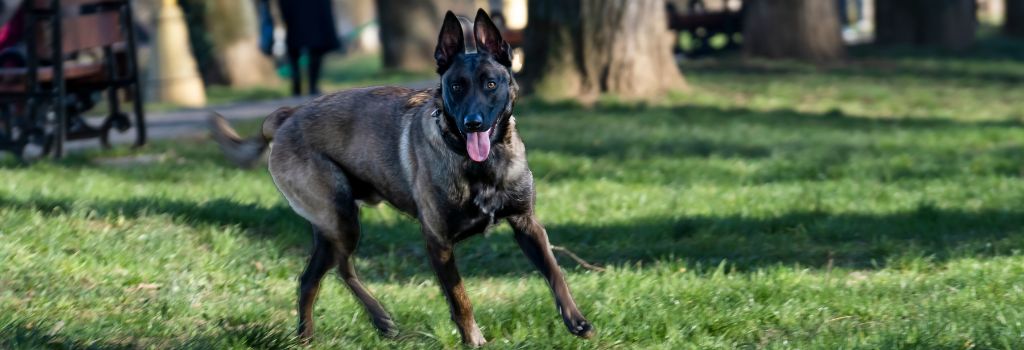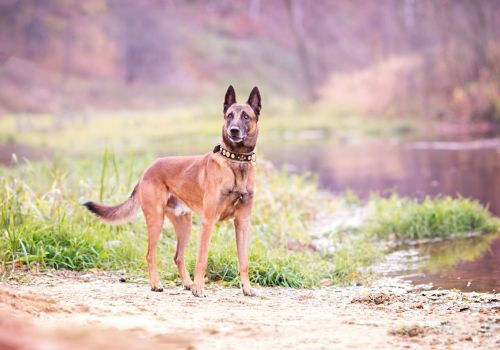We're shining the spotlight on a dog breed that’s not just intelligent, but might even outsmart you—the Belgian Malinois. Trust us, this isn't your average furball; this is a dog on a mission!
The Pawsitive Traits: Why We Adore The Belgian Malinois
- Canine Genius: Seriously, this dog's IQ might rival Einstein's! Belgian Shepherds are impressively quick learners, especially when you use positive reinforcement methods.
- Let's Play!: These dogs are lively, playful, and brimming with energy.
- Low-Maintenance Fur: Their short coat means fewer grooming sessions and more playtime!
- Born Adventurer: If you're hiking up a mountain or exploring a new trail, expect your Belgian Shepherd to lead the way.
Paws for a Minute: The Challenges
- Needs a Job: These dogs require plenty of physical and mental stimulation. A bored Belgian Shepherd is a recipe for mischief.
- Sensitivity Alert: They're emotionally tuned in and can be slow to mature.
- Social Butterfly—or Not: Without proper socialization, they can become aggressive, snappy, or fearful.
- Catch Me If You Can: Their prey drive is strong; they'll chase after anything that moves, so keep an eye out!

A Dog of Many Talents: Beyond the Backyard
This is no ordinary pup—Belgian Shepherds are employed by the Israel Defense Forces, the US Secret Service, and even the Navy SEALs! Whether it's complex support tasks or just a fun game of fetch, this dog takes everything seriously. But be warned: keep her engaged, or she'll find her own (likely chaotic) way to stay entertained.
An Adult with a Puppy’s Heart
As adults, Belgian Shepherds retain the energy levels of a young pup, always ready for action! From chasing cats to excelling in agility courses, these dogs are always on the go.
In a Nutshell
So, if you're up for the challenge and looking for a fiercely intelligent, energetic, and loyal canine, then the Belgian Shepherd is your match made in doggy heaven. Just remember: she’s never really off the clock!

Genetic Predispositions for Belgian Malinois
The Dreaded Bloat: Fast Action Required!
Bloat—or Gastric Dilatation and Volvulus (GDV) if you want to sound super scientific. It's especially common in dogs like your Malinois who have deep, narrow chests. Picture this: your dog's stomach twists and fills with gas. Sounds uncomfortable, right? It's worse; this is a life-threatening condition that can cut off blood supply to vital organs. Immediate emergency care is crucial; this condition can be fatal in as little as 30 minutes. If your dog is retching without anything coming out, acting restless, or lying in a prayer position, speed to an emergency vet ASAP. Good news? There's preventive surgery available to keep that pesky stomach in place!
Seizures and Your Malinois: What You Need to Know

Epilepsy is something you should be aware of, especially because Belgian Malinois are prone to it. Seizures can be reactive, secondary, or primary (idiopathic). Reactive seizures come from metabolic issues like low blood sugar. Secondary seizures arise from serious problems like tumors or strokes. Primary seizures don't have an identifiable cause. If your pup is prone to seizures, medication is usually a lifetime commitment. Important: Never try to control your dog's mouth or tongue during a seizure; focus on keeping him safe.
Joint Troubles: Hip and Elbow Dysplasia
We love watching our Malinois dart around the yard, but as they age, some may start to slow down due to hip and elbow dysplasia. It's a hereditary condition leading to arthritis, affecting both hips and elbows. You may notice your dog struggling to get up or limping. Early diagnosis and treatment are key to minimizing discomfort. P.S. Keeping your pup at a healthy weight can help ward off arthritis!
Going Cloudy: Cataracts and Other Issues

Cataracts can appear in older Malinois, turning their eye lenses cloudy. While many dogs adjust to vision loss, surgical options are also available. Some Malinois may also have Persistent Pupillary Membranes, tiny strands of tissue in their eyes. Usually, these don't cause any issue. Another concern is progressive retinal atrophy (PRA), a genetic condition that eventually leads to blindness. Keep an eye out for early symptoms like night blindness.
Thyroid Woes: When Hormones Go Haywire
Malinois are more likely to develop hypothyroidism, where the thyroid isn't producing enough hormones. This can lead to symptoms like weight gain, dry skin, or even behavioral changes. Don't worry; a simple blood test can diagnose this condition, and medication can manage it well.
If you have questions and you'd like to reach out to us, you can call us directly at (513) 932-4189, or you can email us at [email protected]. Don't forget to follow us on social media Facebook, Instagram.
